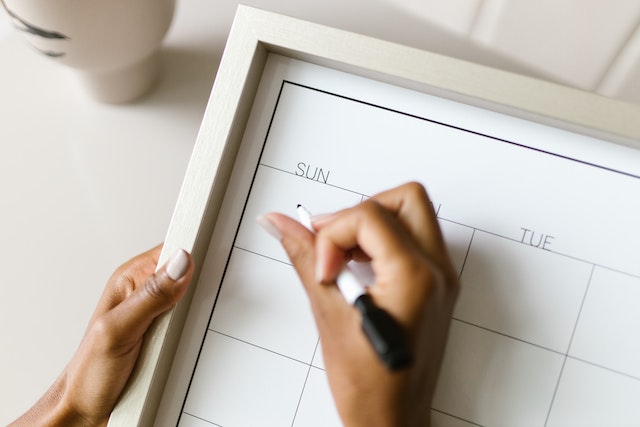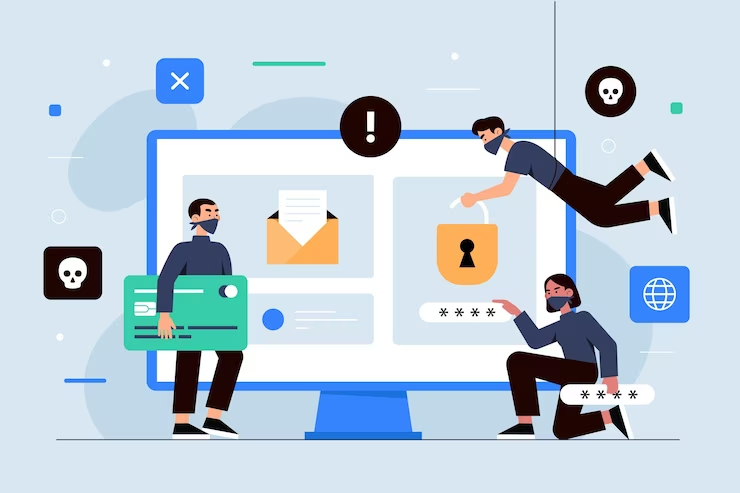When things pile up around you, it’s easy to convince yourself that you’ll get to them eventually. It doesn’t take long before you’re smack in the middle of the chaos.
There’s a good chance you won’t be able to concentrate on the task at hand due to overcommitment and clutter. The inability to plan properly may also contribute to distraction.
Having a plan and getting organized is your best and only choice for regaining control of your life.
Here’s how to plan your time and organize your life to make goals easier to achieve:
Your Phone
If you’re like most people, you probably could use some help in three areas:
- Planning your time
- Organizing your paperwork
- Keeping track of your digital files
And surely, you have a high-tech gadget tucked away in your bag or pocket all the time. You can use it to create innovative solutions to the problem areas mentioned above.
Organize your files via Cloud Storage
Put your digital documents and scanned files in the cloud to access them from any device. Storing data in a cloud basically means renting space on a remote server. It’s like getting a storage unit to store winter gear and holiday decorations during the off-season. Compared to storing files on a local hard drive, storing them in the cloud makes things easier as you can access your files from anywhere.
Organize your cloud storage by folder. Divide your files into personal and business categories, and then further categorizes them as follows:
- IDs
- Purchase receipts
- Insurance papers
- Health records
- Routine paperwork (like work schedules and recipes)
- Photos
Remove the files from your device when you’ve finished uploading to free up some space. Having multiple hard copies of everything is also optional. But be sure to keep original signed legal documents and important papers.

Get rid of digital clutter
Sometimes your smartphone is just too cluttered to get any real work done. There are more alerts than you can handle, unused applications, a disorganized file system, and an overload of useless data.
In addition to reducing your efficiency, this can make using your smartphone a source of frustration. Removing unnecessary apps and files can make using your smartphone a pleasure again.
- Organize photos into albums: If you can’t change the file names like you can on a laptop, at least give your hundreds or thousands of photos descriptive titles. With the ability to shoot a dozen photos in a single second, it’s crucial to go through and remove any that aren’t keepers quickly.
- Remove unnecessary apps: You should go through your app history and remove any useless ones. If you find yourself in need of them again, re-download them.
- Organize your apps: Create folders to organize your apps by function, and your home screen will be more manageable and less cluttered.
- Disable notifications: Avoid the distracting red numbers in the corners of your apps. Additionally, it’s about liberating your mind from the burden of constant notifications and the stress they can cause.
Your Schedule
A hectic timetable could be at the root of your discouragement and exhaustion.
It’s not always wise to say yes to every request and please everyone. Any sane person would feel overwhelmed by a calendar with no free time. So be careful to only commit to what you can realistically carry out. As per my experience, you can be more productive and can offer more quality when you commit that much which you can do easily. Overcommitment is a bad idea for a long-term business; you may not able to offer work with quality. And, gradually, and lastly, you would end up messing up things because of unnecessary pressure.
You can make your life easier or more difficult depending on how you schedule your activities, so keep these in mind:
- Use one or two-word reminders for all of your scheduled events.
- Cross out the elapsed dates and consider whether or not the time was well spent. It will help you decide the activities worth a spot in your calendar.
- Write down all upcoming engagements and events.
- Politely decline invitations and meetings you’d rather not attend.
- When rescheduling a meeting, give attendees a choice between two dates.
- Try to free up most of your Sundays to give yourself time to relax on Sunday. This way, you’ll be well-rested for the coming week.
- Schedule tasks for the days you have the most control over, today, tomorrow, and the day after.
- Avoid feeling too overwhelmed. Overscheduling is counterproductive. When you have an appointment coming up, you may find it difficult to focus on other things and get work done. Time speeds up and becomes shorter than it actually is.
Decluttering can reduce distractions. A clean and organized work area can help you focus on a task and finish it on time.
Consider the fact that thinking minds are constantly at work. You might lose focus on what needs doing if you’re constantly interrupted.







Add Comment